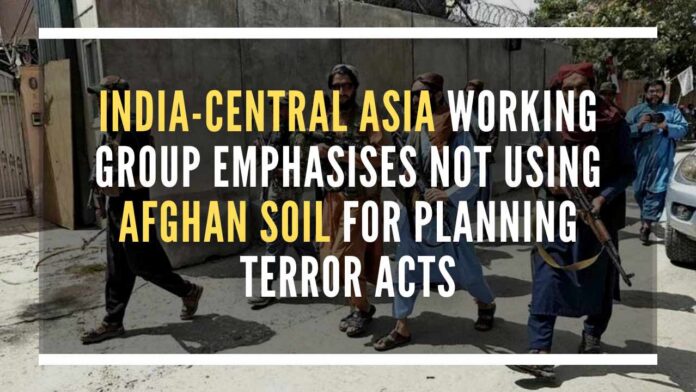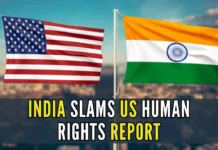
The first meeting of the India-Central Asia JWG held in Delhi
India and five central Asian countries on Tuesday asserted that Afghanistan‘s soil must not be used for any terrorist activities and pressed for the formation of a “truly inclusive” political structure in Kabul that respects the rights of all Afghans including women. The situation in the war-ravaged country came up for extensive deliberations at the first meeting of the India-Central Asia joint working group (JWG) on Afghanistan in Delhi.
Besides hosting India, the meeting was attended by special envoys or senior officials of Kazakhstan, Kyrgyz Republic, Tajikistan, Turkmenistan, and Uzbekistan. Country representatives of the UN Office on Drugs and Crimes (UNODC) and the UN World Food Programme (UNWFP) also participated in the meeting.
A joint statement said the meeting emphasized the importance of forming a “truly inclusive and representative political structure” that respects the rights of all Afghans and ensures equal rights of women, girls, and members of minority groups, including access to education. Last December, India joined several other leading countries in criticizing the Taliban’s decision to ban university education for women in Afghanistan,
The six countries’ joint statement issued in Delhi said the officials at the deliberations discussed regional threats of terrorism, extremism, radicalization, and drug trafficking and also deliberated on the possibilities of coordinating efforts to counter these threats. It said they emphasized that the “territory of Afghanistan should not be used for sheltering, training, planning or financing any terrorist acts and reaffirmed that no terrorist organizations including those designated by the UNSC resolution 1267 should be provided sanctuary or allowed to use the territory of Afghanistan”.
The joint statement said the officials exchanged views on the current situation in Afghanistan, including the political, security, and humanitarian aspects. “While emphasizing the respect for sovereignty, unity and territorial integrity and non-interference in its internal affairs, the sides reiterated support for a peaceful, secure and stable Afghanistan,” it said.
It said the country representative of the UNWFP in Afghanistan briefed the participants on the India-UNWFP partnership to deliver foodgrain assistance to Afghan people and presented the current humanitarian situation, including the aid requirements for the year ahead. India announced the supply of 20,000 metric tonnes of wheat assistance to Afghanistan in partnership with UNWFP through Chabahar Port. The statement said.
“The sides took note of the current humanitarian situation and agreed to continue to provide humanitarian assistance to the Afghan people,” the statement said. It said the country representative of the UNODC in Afghanistan highlighted the partnership of India and UNODC in fighting the menace of narcotics in Afghanistan and thanked New Delhi for “providing humanitarian aid for the Afghan drug user population.”
“Upon their request, India offered capacity building training courses for the relevant stakeholders/ partner agencies of UNODC and the relevant officials/ stakeholders of Central Asian Republics in the field of countering illegal drug trafficking,” the statement said. It said the participants thanked India for holding the first Joint Working Group Meeting on Afghanistan at the senior officials level and agreed to regularly continue consultations in this format.
India has not yet recognized the Taliban regime in Afghanistan and has been pitching for the formation of a truly inclusive government in Kabul besides insisting that Afghan soil must not be used for any terrorist activities against any country. India has been pitching for providing unimpeded humanitarian aid to Afghanistan to address the unfolding humanitarian crisis in the country.
In June last year, India re-established its diplomatic presence in Kabul by deploying a “technical team” to its embassy in the Afghan capital. India had withdrawn its officials from the embassy after the Taliban seized power in August 2021 following concerns over their security.
PGurus is now on Telegram. Click here to join our channel and stay updated with all the latest news and views
For all the latest updates, download PGurus App.
- Supreme Court rejects plea to tally all VVPAT slips with EVM votes; says ‘no going back to paper ballot’ - April 26, 2024
- US report citing human rights violations is deeply biased: India - April 25, 2024
- Kotak Mahindra Bank shares tank 13%. Market Cap erodes by Rs.37,721 cr post-RBI action - April 25, 2024











How is it possible ? Their existence as country is due to their terrorist acts…… death to UN & death to world !!